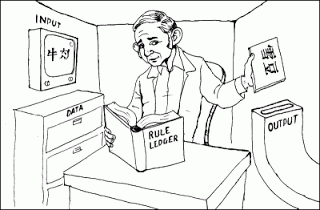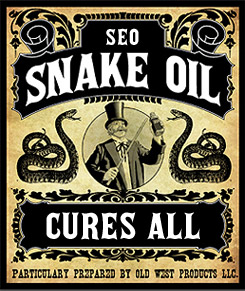Oct
30
2015
 Journalists frustrate me. Whenever they cover a topic about which I have a fair degree of knowledge, or even expertise, they seem to do a generally poor job. There are excellent journalists out there, but the average mediocre journalist tends to fall for the fallacy of false balance, indulge in hype and sensationalism, overly rely on individual experts who may have quirky opinions, and often fail to put topics into a proper context.
Journalists frustrate me. Whenever they cover a topic about which I have a fair degree of knowledge, or even expertise, they seem to do a generally poor job. There are excellent journalists out there, but the average mediocre journalist tends to fall for the fallacy of false balance, indulge in hype and sensationalism, overly rely on individual experts who may have quirky opinions, and often fail to put topics into a proper context.
These failings are exacerbated whenever the topic at issue requires critical thinking and a high degree of skepticism.
Even generally high quality news outlets, like NPR, tend to fail when they deal with topics which require both expertise and skepticism, such as alternative medicine. A recent episode of Marketplace with Colin McEnroe is an excellent example of how a generally reasonable journalist can completely fail when dealing with such topics.
Continue Reading »
Oct
29
2015

Here is the latest fad to make you smarter with one easy trick – Superbrain Yoga. The technique is simple (and worthless, but we’ll get to that).
All you have to do is touch your left hand to your right earlobe, your right hand to your left earlobe, take a deep breath, and do a squat. Who knew it could be so easy to improve your brain function. There are a few more details, helpfully shared by Parenting Special Needs magazine:
– Connect your tongue to your palate.
– Face East
– The left arm must be inside and the right arm must be outside (over the left arm).
– Inhale while squatting down and exhale while standing up.
– You thumbs should be touching the front part of your earlobes, index fingers behind the earlobes.
– Perform the exercise 14-21 times, once or twice a day.
Facing East is very important, because magic.
Continue Reading »
Oct
27
2015
 The World Health Organization (WHO) recently published a monograph summarizing the results of a systematic review of the evidence for the association of red meat and processed meat with cancer. Their results were red meat to journalists, or at least their headline writers, who love sensational headlines like, “Red meat causes cancer.” Whenever you can say something common causes cancer, that’s a good day for journalists.
The World Health Organization (WHO) recently published a monograph summarizing the results of a systematic review of the evidence for the association of red meat and processed meat with cancer. Their results were red meat to journalists, or at least their headline writers, who love sensational headlines like, “Red meat causes cancer.” Whenever you can say something common causes cancer, that’s a good day for journalists.
Let’s put their report into perspective. For red meat they found that there was only limited evidence for any risk for colorectal cancer, but there was strong mechanistic evidence, meaning that a causal connection was plausible. Red meat is essentially any meat from a mammal (beef, pork, lamb).
For processed meat there was sufficient evidence for an association, and they didn’t comment on the evidence for a mechanism. Processed meat includes any meat that is smoked, cured, or salted (bacon, sausage, jerky, ham).
Continue Reading »
Oct
26
2015
 For as long as there has been anything synthetic, apparently, people have been enamored of the idea of “natural.” “Natural” has what is called a health halo, or a sense of wholesomeness, while anything artificial or chemical is presented as automatically harmful.
For as long as there has been anything synthetic, apparently, people have been enamored of the idea of “natural.” “Natural” has what is called a health halo, or a sense of wholesomeness, while anything artificial or chemical is presented as automatically harmful.
When you scratch even a little below the surface, this idea makes no scientific sense. Nature is full of horrible toxins, many of which evolved specifically to be toxic. Nature does not seem to care particularly about one rather egocentric species on Earth, and there is no reason to think that it should. The degree to which something is natural vs synthetic says absolutely nothing about its health effects, but being natural is meant to feel good.
With the advent of social media is has become easier than ever for self-styled gurus and “experts” to market themselves, and many have hit upon the marketing allure of “natural” as a hook. The Food Babe and Natural News immediately come to mind. They have taken rank pseudoscience and wrapped it in a thin veneer of “natural” marketing hype.
As is often the case, however, the famous examples of any phenomenon are usually just the tip of a large pyramid, with many more individuals struggling in relative anonymity. Further, I have often thought that if you want to, for example, figure out how a standard magic trick is performed, don’t watch the famous experts. They are too good. Watch the hacks. They are much more likely to give the trick away.
Continue Reading »
Oct
23
2015
 In 1980 John Searle proposed what has come to be known as the Chinese Room Argument as a refutation of the functionalist theory of consciousness. This is a thought experiment, much like the other most famous thought experiment in artificial intelligence (AI), the Turing test.
In 1980 John Searle proposed what has come to be known as the Chinese Room Argument as a refutation of the functionalist theory of consciousness. This is a thought experiment, much like the other most famous thought experiment in artificial intelligence (AI), the Turing test.
Searle asks you to imagine a native English speaker with no knowledge in Chinese in a locked room with a large number of reference books. Slips of paper with Chinese symbols are passed under the door. The person then looks up the symbols in the reference books, copies the associated symbols onto the paper, and passes it back. In this way the person is generating answers to the questions he is being asked without any understand at all.
I was recently asked this question about the Chines Room Argument:
“My question is, isn’t Searle basically saying that the mind is magical? If the system / room / program can be arbitrarily complex and is able to learn, surely there is nothing material that sets it apart from the brain? I guess I am siding with the epiphenomenalist critics of the argument.”
Continue Reading »
Oct
22
2015
 We are in an awkward stage of technology at the moment. We have a plethora of electronic devices that we can use while driving, yet the computer technology to help us drive is not quite ready (although we are on the cusp). We may be living is a period of maximum distracted driving, with entertainment systems, now infotainment, GPS, cell phones, and complex environmental and other control to operate the car itself.
We are in an awkward stage of technology at the moment. We have a plethora of electronic devices that we can use while driving, yet the computer technology to help us drive is not quite ready (although we are on the cusp). We may be living is a period of maximum distracted driving, with entertainment systems, now infotainment, GPS, cell phones, and complex environmental and other control to operate the car itself.
A new study shows that the problem is perhaps worse than most people realize. We’ll get to that in a moment.
Every control that a driver can operate distracts their attention from the road. This is because we have limited attention and cognitive resources. Obviously taking one’s eyes away from the road to look at controls is bad, but even without visual distraction, cognitive load is a problem.
Continue Reading »
Oct
20
2015
 More than 50 years after JFK was shot and killed by Lee Harvey Oswald the majority of Americans believe that the assassination was part of a conspiracy. Recent Gallup polls show that 61% believe others were involved in the assassination, while 30% believe Oswald acted alone (in 2000 the numbers were 81% and 13% respectively).
More than 50 years after JFK was shot and killed by Lee Harvey Oswald the majority of Americans believe that the assassination was part of a conspiracy. Recent Gallup polls show that 61% believe others were involved in the assassination, while 30% believe Oswald acted alone (in 2000 the numbers were 81% and 13% respectively).
This is despite the fact that the evidence overwhelmingly shows that Oswald acted alone, and there is no solid evidence of any conspiracy. What this reflects, in my opinion, is two things: the psychological allure of conspiracy theories, and the cottage industry of conspiracy theorists.
Whenever I discuss conspiracy theories I have to add this caveat about what I mean. Obviously there are real conspiracies in the world – whenever two or more people work together to commit a crime or do something nefarious, you have a conspiracy. “Conspiracy theories,” however, is short hand for a grand conspiracy, something that involves many people or powerful organizations working over long periods of time through vast networks of control.
Continue Reading »
Oct
16
2015
 A recent proposed change to the New Zealand code of conduct for pharmacists provides yet more evidence for my primary criticism of the alternative medicine phenomenon (CAM), that it is explicitly about creating a double standard, while convincing the public that it isn’t. What was considered health fraud 50 years ago has been transformed through deception and clever marketing (facilitated by a willful media and naive regulators and professionals) into an “alternative” that should be “integrated” into science-based health care.
A recent proposed change to the New Zealand code of conduct for pharmacists provides yet more evidence for my primary criticism of the alternative medicine phenomenon (CAM), that it is explicitly about creating a double standard, while convincing the public that it isn’t. What was considered health fraud 50 years ago has been transformed through deception and clever marketing (facilitated by a willful media and naive regulators and professionals) into an “alternative” that should be “integrated” into science-based health care.
Broadly speaking, there are systems in place to ensure a reasonable standard of safety and effectiveness for medical products and practices. These standards are based upon evidence, as they should be. There have always been operating in the fringes, however, those who are somewhere on the spectrum from true believers to con-artists who want to sell their treatments despite a lack of evidence.
Despite having an NIH office dedicated to finding evidence to support such treatments, and despite raking in literally billions of dollars which could be used to fund research, for the most part the evidence never materialized. Homeopathy, acupuncture, and energy healing continue to lack evidence of efficacy.
Continue Reading »
Oct
15
2015
 A new study tests a hypothesis about the nature of hallucinations, which is a sensory perception not connected to reality (an illusion, by contrast, is a misperception of something that is there). The question the researchers were addressing is whether hallucinations are best understood as a shift in the balance of a normal brain function.
A new study tests a hypothesis about the nature of hallucinations, which is a sensory perception not connected to reality (an illusion, by contrast, is a misperception of something that is there). The question the researchers were addressing is whether hallucinations are best understood as a shift in the balance of a normal brain function.
This is an interesting general question in trying to understand brain function and disorders. Many brain disorders are understood not as something in the brain being “broken” but simply out of its optimal parameters. Anxiety is a great example. The phenomenon of anxiety is a healthy and necessary brain function. If you completely lacked anxiety you would lack the motivation to look both ways before crossing the street, or even to have a job or take care of yourself. Too much anxiety, however, can become uncomfortable or even crippling.
The question is, does this same logic apply to hallucinations? Researchers from Cambridge and Cardiff Universities in the UK think the answer is yes.
The basic brain function they think is altered in hallucinations is the relationship between what they call top-down vs bottom-up perception. Bottom up perception involves sensory information being processed by primary sensory systems in the brain, then being passed onto higher and higher systems for analysis, construction, and assigning of meaning.
Continue Reading »
Oct
13
2015
 The 2015 Nobel Prize for Physiology or Medicine went to three scientists who discovered treatments for parasites. Tu Youyou shared half the prize for her discovery of artemisinin, an effective drug against malaria.
The 2015 Nobel Prize for Physiology or Medicine went to three scientists who discovered treatments for parasites. Tu Youyou shared half the prize for her discovery of artemisinin, an effective drug against malaria.
Youyou is a Chinese researcher and, as has been widely reported, she relied on traditional Chinese texts to search for candidate herbs to test for activity against malaria. This has sparked a public debate about what lessons we can derive from this fact. Promoters of traditional Chinese medicine (TCM) argue that is shows the value of TCM. Amazingly (revealing their intellectual dishonesty) Naturopaths crowed that this was a vindication of naturopathic medicine.
Scott Gavura over at Science-Based Medicine gives a great analysis of what Youyou’s work really means. Meanwhile the New York Times struggles to give a “false balance” approach to the issue. There are a few interesting points worth highlighting.
The story itself is uncontroversial. Youyou set out specifically to find a drug that would be effective against malaria, which remains a serious medical problem for much of the world. Existing drugs, quinine and chloroquine, were developing resistance, and a replacement was needed. Her starting point was TCM texts, looking for any natural product that was used to treat fever. She came up with 2000 candidates.
Continue Reading »
 Journalists frustrate me. Whenever they cover a topic about which I have a fair degree of knowledge, or even expertise, they seem to do a generally poor job. There are excellent journalists out there, but the average mediocre journalist tends to fall for the fallacy of false balance, indulge in hype and sensationalism, overly rely on individual experts who may have quirky opinions, and often fail to put topics into a proper context.
Journalists frustrate me. Whenever they cover a topic about which I have a fair degree of knowledge, or even expertise, they seem to do a generally poor job. There are excellent journalists out there, but the average mediocre journalist tends to fall for the fallacy of false balance, indulge in hype and sensationalism, overly rely on individual experts who may have quirky opinions, and often fail to put topics into a proper context.














